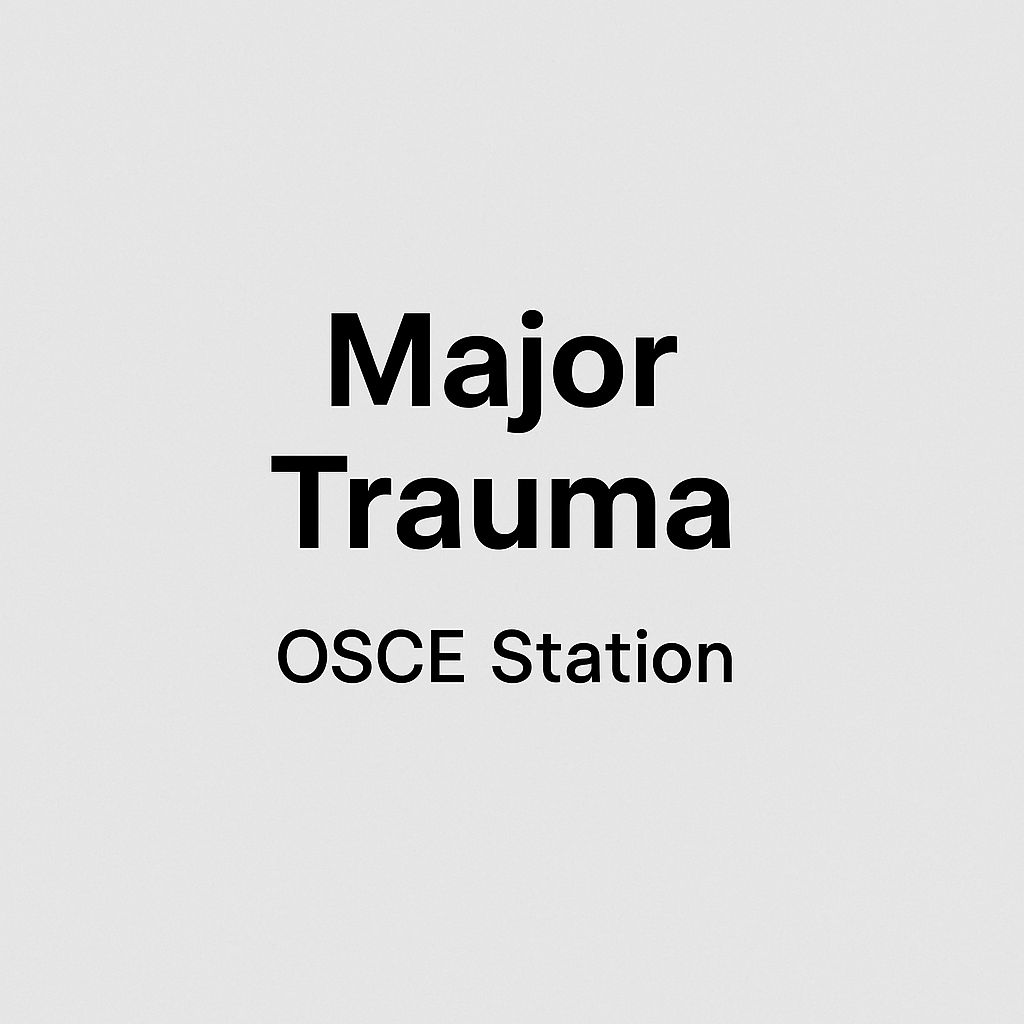MRCEM/FRCEM OSCE( Major Trauma )

RCEM OSCE( Major Trauma )
Approach to Adult Major Trauma – MRCEM OSCE Summary
1. Preparation & Team Leadership
• Introduce yourself as the team leader on arrival.
• Perform a quick team brief. • Allocate roles clearly (airway, circulation, runner, scribe) based on team members’ capabilities.
• Ensure PPE and scene safety.
• Call for help early — activate the trauma team and consider Major Haemorrhage Protocol if required.
2. Primary Survey – ABCDE Approach
Structured, with simultaneous life-saving interventions:
• A – Airway + C-Spine Protection
• Check patency, use jaw thrust, suction, adjuncts (OPA/NPA), or RSI if indicated.
• Maintain C-spine immobilisation throughout.
• B – Breathing
• Assess chest rise, RR, oxygen sats.
• Manage tension pneumothorax, haemothorax, open chest wounds, flail chest.
• Give high-flow oxygen, insert chest drain if needed.
• Consider FAST scan if available.
• C – Circulation with Haemorrhage Control
• Assess pulse, BP, cap refill.
• Stop external bleeding (pressure, tourniquet).
• Apply pelvic binder if indicated.
• Insert 2x large-bore IV lines, send bloods (FBC, clotting, crossmatch, lactate).
• If unstable: resuscitate with O-negative blood.
• Activate Major Haemorrhage Protocol if ongoing bleeding.
• D – Disability
• Assess GCS, pupils, blood glucose.
• E – Exposure & Environment
• Fully expose the patient to identify hidden injuries.
• Prevent hypothermia using blankets, warm fluids, and warm environment.
3. Reassessment
• Reassess ABCDE after each intervention to evaluate response and detect deterioration.
• Monitor vital signs, GCS, and clinical progress closely.
• Be prepared to escalate care or repeat interventions.
4. Communication & Handover
• Use clear, calm leadership and closed-loop communication.
• Involve senior clinicians early.
• Use structured handovers (e.g., ATMIST).
• If the patient is conscious, offer brief, reassuring explanations.
⸻
Note: Trauma in special populations (e.g. paediatrics, pregnancy, elderly, anticoagulated patients) will be covered in upcoming posts.
Khaled Khalifa
Consultant Emergency Medicine
Manchester University NHS Foundation Trust, UK
Wythenshawe Hospital


